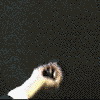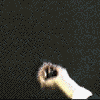Edited excerpts from Peter Nissen’s letter to Yale’s Redhot and Blue alumni about memorial gathering for Randy Hostetler held in Los Angeles on Feb. 3, 1996
February 8, 1996
Dear Redhot and Blue:
Redhot and Blue alumnus Randy Hostetler died the morning of February lst at his home in Los Angeles.
He was an extraordinary musician, one-time Pitchpipe for Rh&B, arranger of “Summertime” and “‘Round Midnight”, member of the Class of ’85 and a vibrant soul loved by everyone he met. He was 32 years old.
If you never knew him personally, chances are Randy’s a part of you anyhow. Most of you have sung his arrangements. He imparted as much beauty, excitement and thought to his daily life as he put in those songs, with their gorgeous harmonies and expert syncopations. After leaving Yale he attended Cal Arts here, and more fully explored sonic tapestries not conventionally musical. He was intensely fascinated with sounds of all kind, and loved catching and manipulating them on tape or in performance.
Last Sunday February 4th in La Crescenta, a mountain suburb north of Los Angeles, his Yale friend Paul Hershenson and Mimi Hertzog hosted a gathering at their house for Randy’s family and West Coast friends. It was arranged by Paul, Mimi, Dave Edelson Tolchinski and his wife Debra, Mike Deneen, Julian Saenz, and Francesca Talenti. This is an account of that gathering.
People came from all corners of the globe. His father Jim, mother Zona and brother Eric, came from Washington. Redhot and Blue was represented by me, Peter Nissen, from Los Angeles, Scott Young from Los Angeles, John Kelley from San Francisco, and Andrew Lowenstein who flew in from Moscow with his wife, then flew out the next day. Dave Tolchinski came from Oregon, Julian from DC, Mike from Boston, and Francesca from Austin. Also from San Francisco there were Marc Lowenstein (Andrew’s brother) Rick Applebaum, and Yale friend Steve Arneson. Also there were Patrick Hewes from Seattle and his brother Four Hewes from Austin –friends from DC; And many more.
Altogether there were more than 75 people. It was like the parties Randy would throw. You’d go there and wouldn’t know anyone. He had so many pockets of friends here and there, and all so interesting. Many were from his years at Cal Arts… artists of all kinds, performance artists, musicians, etc.
It was a warm sunny afternoon, and under the trees in Paul and Mimi’s backyard, people sat on folding chairs arranged in circular rows, all facing a table loaded with stereo equipment.
Dave Tolchinski welcomed us and invited all to share memories or play a tape.
Randy’s neighbor Bob, who found him, spoke. Bob said Randy’s face looked very much at peace. He assured us it did not look as though Randy had suffered. Everyone thanked him.
Randy lived in Echo Park, a beautiful and extremely hilly section of Los Angeles not far from Dodger Stadium, an artist’s neighborhood, on the crest of a narrow and winding street where it was impossible to find a parking spot. His was the lower of two apartments in a building which descended down the hillside. You stepped down to enter his home which was filled with Jonathan Richman records and computer equipment. A rake hung on the wall. He had a cat named Vanilla, who now lives with Francesca in Texas. Out back, down a couple more steps, was a stone patio that overlooked a valley of evergreen trees and houses–on that patio he had his parties. Further down the hill next to a path, Randy planted herbs and vegetables. He made money by tuning pianos (without using scopes), but told Paul he’d always rather be gardening than tuning. Randy was fascinated with seed catalogs. Other hobbies which fully absorbed him included Tai Chi and the Internet.
After Bob spoke, a tape was played: an audio collage of people telling stories. It included a snippet that went “Once upon a time there was a little girl named Muna”–and many other familiar voices from Rh&B. That tape broke the ice. It was just so interesting and often funny. From then on, the afternoon brought more laughter than tears.
Paul said to know Randy was to love him and to be very frustrated with him. Randy once asked to borrow his microphone… to put in the shower.
Steve Horowitz played another tape. Randy once recorded himself sleeping, and two friends had recorded a second track, accompanying his breath on saxophones. They generally played one note every time he exhaled.
Andrew told how during Rush, Randy was a tough sell for everyone but him and Mark. The group was still unsure to tap Randy after a run-off audition (he sang “Meet the Flintstones”), until Andrew asked him to sit down and play the piano. It was a lock.
One person described how Randy was fascinated with Salvation Army Santas and their bells. Randy once [planned to] coordinate a corps of guerrilla bell-ringers who would appear out of nowhere, jam with Santa, and just as quickly, disappear.
That reminded me of the night he led a group of us into Sterling Library’s lobby, where without warning or provocation we started slamming the catalog drawers repeatedly into the cabinets. The security guard had no clue how to deal with this incredibly loud phenomenon. He physically tried to stop Randy, but Randy overpowered him and kept slamming.
Randy once asked me to keep my eye out for clumps of audio tape that had been ripped out of their cassettes and left somewhere. He wanted to play them to see how they reflected the Zeitgeist of the time and place of their discovery. For two years I’ve been stopping traffic to gather these, and friends have been sending them from afar. Julian Saenz tells me Randy once actually did figure out how to play one of these tapes, and it sounded fast.
A Cal Arts friend down from San Francisco named Sten Rudstrom read a poem he had just written asking, Why?
Art Jarvinen brought a gamelon of sorts–hanging iron squares which he struck with mallets. He played a haunting and beautiful piece he had just written in tribute to Randy.
Zona and Francesca described Randy’s Cal Arts Senior Recital. Up on stage, there were two grand pianos with their hoods up, plus a car with its hood up. Randy “played” them all.
Jim, his dad, recalled how Randy loved squeaks; loved making his grandparents’ doors squeak. And he once spent all night recording his car’s various squeaks, because he was scared it would be sold before he had captured its noises.
Many concurred that being with Randy often involved some kind of car trouble. Sometimes he would simply run out of gas. His friend Four Hewes described their cross-country trip… its beauty, its music, its car trouble.
The afternoon concentrated largely on Randy’s life in Los Angeles. To give an example of Randy’s Yale days, and his talent for more conventional music, I put in the cassette “Redhot and Blue 1986”, and we listened to “Summertime”. That beautiful song moved a lot of people to tears.
It helped me realize what a force of nature Redhot and Blue is. I showed Jim our Alumni list and assured him Randy will always live within us and the songs we sing or carry in our heads. And over the past few days, I’ve never seen such a large and strong safety net of emotional support. Thanks, guys. Thanks especially from Randy’s family.
The last time I saw Randy was in October, when he had just bought a shortwave radio. He couldn’t wait to get home to unpack it. He literally couldn’t wait, so he stopped off at my house and we played with it like a new Christmas present, pulling in odd signals in different languages.
Altogether, it was a beautiful, wonderful day. Randy was more living than not. There were moments of pure joy when all else was forgotten except for Randy’s sense of humor, love and genius. The gathering started at 3:00 pm, then moved inside when it got dark and chilly around 6, and went on until maybe l0:00 pm. One of the last things that happened was this. Randy’s dear friend Francesca gathered us in the den and said she couldn’t believe she didn’t think of this until just 45 minutes ago. But Randy actually once said if he died, he wanted a certain song to be played. And she put on a Louis Armstrong record. I cried, because there’s so much Randy in it.
I see trees of green, red roses too
I see them bloom for me and you
And I say to myself, what a wonderful world.
I see skies of blue, and clouds of white
The bright blessed day, the dark sacred night
And I say to myself, what a wonderful world.
The colors of the rainbow, so pretty in the sky
Are also on the faces of people goin’ by.
I see friends shaking hands saying how do you do?
They’re really saying I love you.
I hear babies cry, and watch them grow
They’ll learn much more than I’ll ever know
And I say to myself, what a wonderful world.
And I say to myself, what a wonderful world.
(Listen to Louis Armstrong sing the beginning of “It’s A Wonderful World,” in RealAudio.)


